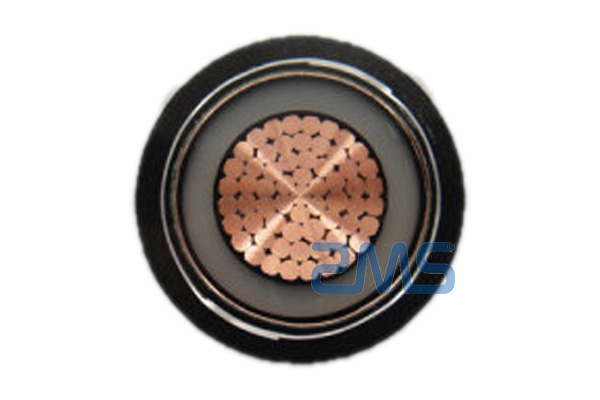From a worldwide perspective, high-voltage DC transmission cable is applied to the following areas such as long-distance high-capacity overhead transmission, power grid interconnection, and long-distance submarine cable transmission with obvious advantages.

The first is long-distance overhead line transmission. According to the results of relevant studies, DC overhead line transmission begins to take advantage of 10 billion watts and 300 kilometers or more. This means that more than 26% of the total global transmission capacity applies to DC overhead lines.
The second is submarine cable transmission. Studies show that about one-third of the world’s current DC transmission projects are for submarine cable transmission.
The third is to limit the short-circuit current. With countries and regions increasing the power load, power supply and grid construction continue to expand, the size of the AC grid is getting larger and larger, and short-circuit fault occurs as the fault current is also getting larger. DC transmission has obvious advantages in limiting short-circuit current and is being used in more and more areas.
As a countermeasure against short-circuit currents in areas with concentrated metropolitan loads, light-weight DC transmission equipment with device phase change is widely favored because of its small footprint and rapid response.
In the area of grid interconnection, the use of DC methods such as BTB to interconnect a number of relatively smalls, independently operating small systems can effectively reduce fault short-circuit currents. Studies conducted by Japanese scholars on serial systems in Kansai, China, Kyushu, and Shikoku in Japan have shown that if DC methods are used to connect Kansai to China, China to Kyushu, Kyushu to Shikoku, and Shikoku to Kansai, short-circuit currents will be greatly suppressed and transmission from small systems to large systems will be realized.
In addition, converters composed of switchable devices can be used to supply power to small isolated systems such as offshore oil platforms and islands. In the future, they can also be used in urban power distribution systems to access distributed power sources such as fuel cells and photovoltaic power generation. A lightweight DC transmission system is more helpful to solve the problem of stability of clean energy access.
At present, there are high-voltage DC transmission projects on five continents in the world, and they are dense in economically developed regions such as North America and Western Europe. As the economic development region moves to Asia, there are more and more DC transmission projects in China and the surrounding areas.
China’s research on high-voltage DC transmission began in the 1950s, and the first thyristor valve simulator was built in the 1960s at the China Electric Power Research Institute. In order to better study high-voltage DC transmission, an AC cable line was changed to a 31 kV DC transmission test line in Shanghai in 1977.
The previous research laid a certain foundation for the development of high-voltage DC transmission in China. By the late 1980s, China’s high-voltage DC transmission research and development made a breakthrough and began to develop rapidly. More than 10 DC transmission projects have been put into operation. In particular, on December 28, 2009, the Yunnan-Guangdong UHV DC transmission project was successfully put into operation on a single pole, which is the world’s first ±800 kV UHV DC transmission project. This is the first ±800 kV UHV DC transmission project in the world. It marks that China’s power technology and equipment manufacturing have reached the international advanced level and occupied a new high point in the field of power transmission and transformation in the world.
In order to realize China’s “west-east power transmission” strategic plan, China is actively promoting the construction of ± 660 kV, ± 800 kV, and ± 1000 kV ultra-high-voltage DC transmission projects.
With the rapid development of new energy and environmental protection requirements, China has stronger market demand for DC transmission technology.
In the next 20 years, the State Grid Corporation plans to build more than 40 DC transmission projects, including more than 15 UHV DC transmission projects.
According to the relevant institutions, according to current equipment prices, the total investment in the construction of each UHV DC transmission project in China is more than 15 billion yuan. Among them, the price of a UHV DC converter valve and converter is 1.5 billion to 2 billion yuan, the price of a flat wave reactor is about 1 billion yuan, the price of a control and protection system is more than 400 million yuan, and the total cost of AC field and DC field complete sets of equipment is also close to 2 billion yuan. The equipment investment (excluding lines and towers) for each UHV DC transmission converter station is about 8 billion yuan. DC transmission equipment is expected to reach a market size of about 200 billion yuan in the next 20 years.
Technological advances are driving the birth of more new materials and technologies, and the use of high-voltage DC transmission technology is expanding. Some new ways of power generation require the application of DC transmission technology. For example, the electricity generated by magnetic fluid, electric gas, fuel cells, and solar cells should be sent out in DC mode, and the ocean energy power plants in distant seas need to use submarine DC cables to send electricity to the mainland. In addition, new batteries and superconductors and other new energy storage systems, and AC power system connections are required when the DC transmission technology.
It is foreseeable that with the further development of power electronic devices, the update of computer technology, the emergence of new materials for power transmission and transformation, and the development and utilization of new and renewable energy, high-voltage DC transmission will have a broader application prospect.


